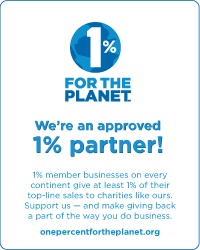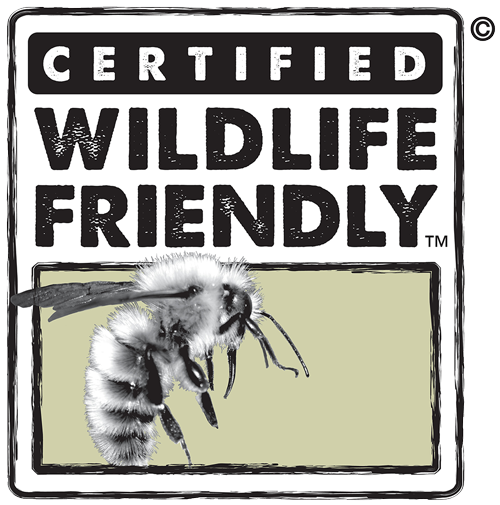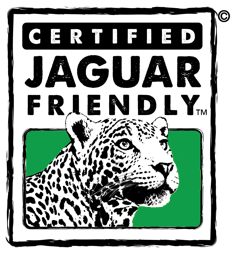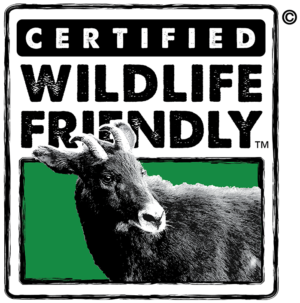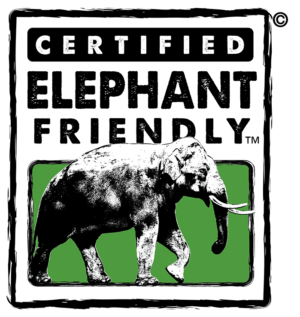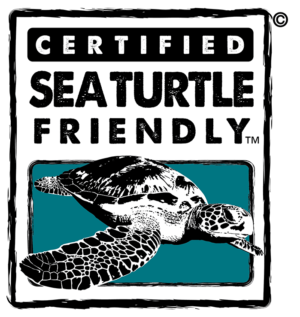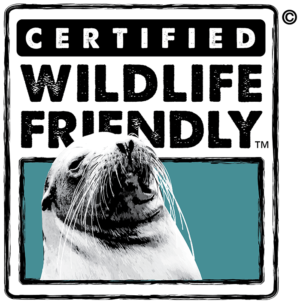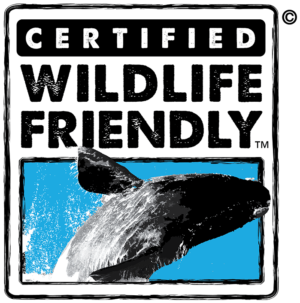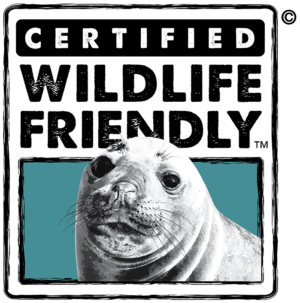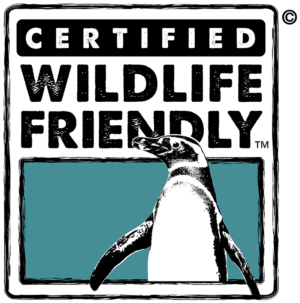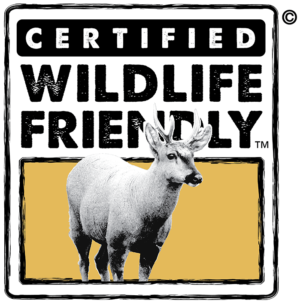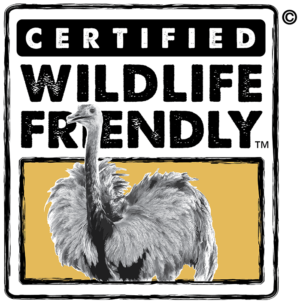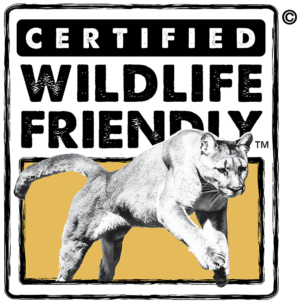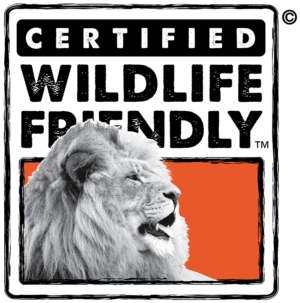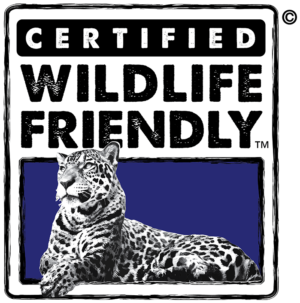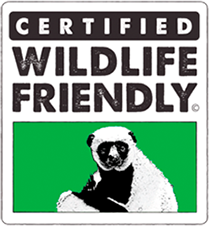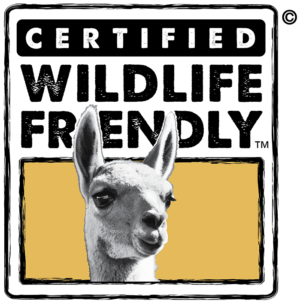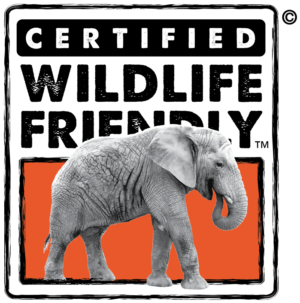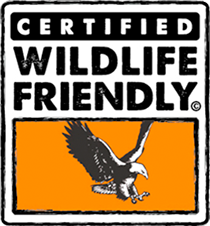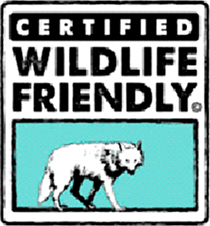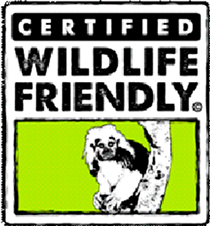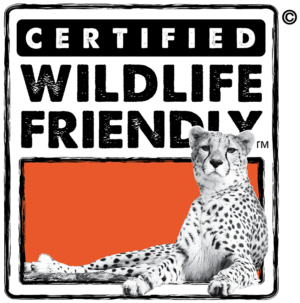Argentine Designer “MAYDI” to Launch New Collection Featuring Wildlife Friendly™ Certified Fibers During Paris Fashion Week
Home grown luxurious merino wool sourced from Certified Wildlife Friendly™ ranchers is part of WCS Argentina’s Patagonian Fibers with a Conscience™ program
FOR IMMEDIATE RELEASE
BUENOS AIRES AND PUERTO MADRYN, ARGENTINA (January 7, 2019)— Argentine knitwear line Maydi, 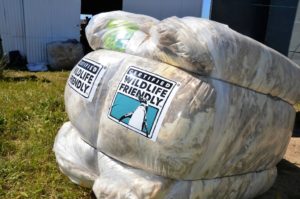

WCS Argentina supports the Merino Peninsula Valdés™ (MPV) group who are committed to managing their ranches to allow healthy populations of guanacos, rheas, and maras to co-exist with their sheep, and to use non-lethal methods to control predation by pumas, chilla foxes, and Geoffroy’s and pampas cats. Fundación Vida Silvestre Argentina (FVSA) will provide third-party verification of compliance with commitments and collaborate with WCS to monitor impacts on wildlife. “We all agree in making the coexistence between sheep ranching and healthy wildlife a long-term achievement,” said Alejandro Arias, coordinator of the FVSA program. WCS and FVSA are working together under a cooperation agreement with the USFWS to expand the sustainably managed land in the area.
Península Valdés is a 4,000–square-kilometer (1,544 square miles) protected area in Patagonia, declared a UNESCO Natural World Heritage Site in 1999. Península Valdés still harbors significant populations of native wildlife, and its waters are critical habitat for southern right whales, sea lions, magellanic penguins and elephant seals. Although a management plan has been effective in conserving coastal wildlife, the land is privately owned and sheep ranching is widespread.
“These ranchers are committed to wildlife-friendly practices because they are convinced that their economic futures are better served by moving away from maximizing sheep stocking rates and adding value by conserving native species at Península Valdés, an emblematic site of Patagonia. Our work is based on scientific research on wildlife ecology,” said Ricardo Baldi, a scientist from CONICET, the Argentine national science agency, and consultant for WCS.
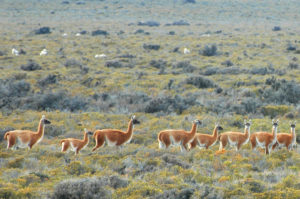
“We are so gratified to see this enthusiasm from designers and brands in sourcing Wildlife Friendly™ fibers,” said Julie Stein, former Executive Director and co-founder of WFEN, “because global consumers want to support wildlife and habitat through their purchases. This demand demonstrates to ranchers and the Argentinean government that wildlife has economic value and that wildlands and ranchlands can both thrive. Its very exciting to work with such an exceptionally talented designer like Maria who also shares our vision for a definition of sustainable fashion that includes biodiversity.”
For wholesalers, retailers and consumers interested in purchasing the Maydi line please contact: contact@maydiaz.com
###
About Maydi
Maydi uses only natural fibers and organic yarns in her hand-woven fabrics. The timeless spirit of each piece manifests itself in a 100% contemporary and refined design, carried out through the ancient techniques of hand-knitting, manual weaving loom and crochet, which are thus revalued. Maydi believes in the principles of fair trade, hence her designs are developed and produced in collaboration with local Argentine artisans, assuring them fair remuneration and respect for the legacy of their craft and art. Weaving loom is one of the oldest cultural traditions of Aboriginal peoples and a clear statement of the importance of women as transmitters of life and culture in society and selects exclusively noble materials such as merino wool of Argentine Patagonia —including yarn in spinning wheel—, mohair, cotton and silk straw. Argentine organic merino is comparable with precious fibers (such as cashmere and alpaca) for its smoothness, shine, and softness, and stands out among the main materials used in the collection. For this reason, beyond this intrinsic quality of fiber, Maydi works with Merino wools that are backed by a production process which takes care of the environment, the well-being of animals and the development of individuals and organizations involved in the entire value chain.
The dyes used are completely natural, obtained from native plants such as: Tara, Palo Amarillo, Guayacán and Cochinilla from Argentina and South America through environmentally friendly processes.
Maydi sets the quality bar very high, ensuring meticulous attention to detail in the entire process of creation of each garment, hand-made from start to finish. Thus, the design of each piece enables raw materials to speak for themselves. The brand continues to cultivate a relationship with internal market: Maydi redoubles its value for customers who appreciate good taste and high design, with made-to measure pieces. Thus, it intensifies the uniqueness of its items and justifies even more the longing for them.
INTERNATIONAL STOCKISTS
SOLIS
6, quai Jules Courmont, Angle rue Thomassin 69002 Lyon — FRANCE
www.solisboutique.com
BIOTOP
4-6-44 Shirokanedai, Minato-ku, 108-0071, Tokyo — JAPAN
www.biotop.jp
LA KAGU
67 Yaraicho, Shinjuku-ku, Tokyo — JAPAN
www.lakagu.com
PLAGE
20-17 Daikanyamacho, Shibuya-Ku 162-0805 Tokyo — JAPAN
www.plage.baycrews.co.jp/store/
CEMENT
2-14-25-101 Shimo ochiai Shinjuku-ku 161-0033, Tokyo — JAPAN
www.cement-own.com
ISETAN
3 – 14 – 1 Shinjuku, Shinjuku-Ku 160-0022 Tokyo — JAPAN
isetan.mistore.jp/store
MAIDENS SHOP
2-19-12 Jingumae Shibuya-Ku, Tokyo — JAPAN
shop.maiden.jp
CHAOS
4-10-5 Jingumae Shibuya-Ku 150-0001 Tokyo — JAPAN
www.chaostokyo.jp
ORA ET LABORA
750 Fort Worth Ave Suite H130, Dallas, TX 75208 – USA
www.oetl.co
About Wildlife Friendly Enterprise Network
WFEN and its certification programs represent grassroots farmers, ranchers, herders, artisans, indigenous peoples and conservation heroes from around the world including two World Bank Development Marketplace Award winners, a U.N. Equator Prize winner, leadership in the world’s marketplace for REDD+ Carbon Offsets, and a Time Hero for the Planet. Wildlife Friendly® products contribute to the conservation of over fourteen million hectares of diverse wetlands, forests, and grasslands; protect keystone endangered species inAsia, Africa, Europe, and Latin and North America, including the Snow Leopard, Elephant, Tiger, Cheetah, Red Panda, and Wolf; and benefit over 400,000 people through increased food security, income and employment. For more information visit: www.wildlifefriendly.org, IG: @wildlifefriendly, Twitter: @wfen
About the Wildlife Conservation Society (WCS)
MISSION: WCS saves wildlife and wild places worldwide through science, conservation action, education, and inspiring people to value nature. VISION: WCS envisions a world where wildlife thrives in healthy lands and seas, valued by societies that embrace and benefit from the diversity and integrity of life on earth. To achieve our mission, WCS, based at the Bronx Zoo, harnesses the power of its Global Conservation Program in more than 60 nations and in all the world’s oceans and its five wildlife parks in New York City, visited by 4 million people annually. WCS combines its expertise in the field, zoos, and aquarium to achieve its conservation mission.
Visit: www.wcs.org;
https://www.facebook.com/TheWCS;
https://www.youtube.com/user/WCSMedia
Follow: @thewcs
Contact:
Maydi: contact@maydiaz.com
Conicet: Ricardo Baldi: rbaldi@wcs.org
WCS: Stephen Sautner; ssautner@wcs.org
Wildlife Friendly: Christine Lippai: christine@wildlifefriendly.org
Sustainable products promote coexistence between native wildlife
and fiber production
FOR IMMEDIATE RELEASE
The Wildlife Friendly Enterprise Network (WFEN) and the Wildlife Conservation Society Argentina (WCS) are pleased to announce the Wildlife Friendly™ certification of high quality mohair, merino wool, and cashmere, in recognition of the efforts of a cooperative of criancero herders to co-exist with the region’s native wildlife.

Local mixed-breed dog working as a guarding dog for goats. Credit: Alejandro Gonzalez.
Following years of work to improve land management practices and fiber quality, and support from WCS, 12 herders of the Neuquén, Argentina-based Programa Mohair are now offering both raw fiber and spun yarn for sale, under the Fibras del Viento (Fibers of the Wind) label. Fibers are available in natural colors and dyes, including green from Yerba mate, the national beverage of Argentina. Fine yarn and finished goods are spun and handcrafted at a small mill operated by cooperative members.
“The commitment of these herders participating in the Programa Mohair shows that it is possible to improve land use practices and combine increased product value with real conservation results. This is a high impact social and wildlife achievement that we hope will inspire other livestock producers in Patagonia,” said Guillermo Harris, WCS Argentina Director.

Puma in Laguna Blanca National Park, where some of the certified herders live. Credit: WCS Argentina
The actions of the livestock herders to coexist with native wildlife are important to the conservation of the unique fauna criollo dogs to protect their livestock from predators. Although their family farms are small, and they often struggle to maintain their livelihood, the herders are committed to sustainable production for the good of their land, livestock, and native wildlife.
“We are watching a Wildlife Friendly™ fiber movement unfold right now across Patagonia” said Julie Stein, Executive Director and Co-founder of WFEN. “Part of our mission is to create communities of practice that share innovations, challenges and successes across landscapes. These Programa Mohair herders and a growing number of ranching neighbors are at the leading edge of that effort. Designers, consumers and companies are taking note of their compelling stories of coexistence. Each step forward by these producers has been the result of hard work, and is thrilling to witness. We congratulate these heroes of conservation for their actions.”
Consumers wishing to purchase these responsibly produced fibers can write to ventas.fibrasdelviento@gmail.com or coopeagropezapala@gmail.com

Products made from mohair and mohair-merino blends. Credit: Susan Walker
###
About Wildlife Friendly Enterprise Network
WFEN and its Certified Wildlife Friendly®, Predator Friendly®, Certified Gorilla Friendly™, Jaguar and Sea Turtle Friendly™ certification programs represent grassroots farmers, ranchers, artisans, indigenous peoples and conservation heroes from around the world including two World Bank Development Marketplace Award winners, a U.N. Equator Prize winner, leadership in the world’s marketplace for REDD+ Carbon Offsets, a Time Hero for the Planet, and a National Geographic Big Cats Initiative grantee. Certified Wildlife Friendly® products contribute to the conservation of over twelve million hectares of diverse wetlands, forests, and grasslands; protect keystone endangered species in Asia, Africa, Europe, and Latin and North America, including the Snow Leopard, Elephant, Tiger, Cheetah, Red Panda, and Wolf; and benefit over 200,000 people through increased food security, income and employment. For more information visit: www.wildlifefriendly.org
About WCS (Wildlife Conservation Society)
MISSION: WCS saves wildlife and wild places worldwide through science, conservation action, education, and inspiring people to value nature. To achieve our mission, WCS, based at the Bronx Zoo, harnesses the power of its Global Conservation Program in nearly 60 nations and in all the world’s oceans and its five wildlife parks in New York City, visited by 4 million people annually. WCS combines its expertise in the field, zoos, and aquarium to achieve its conservation mission. Visit: newsroom.wcs.org Follow: @WCSNewsroom. For more information: 347-840-1242.
Visit: www.wcsargentina.org;
https://www.facebook.com/TheWCS;
https://www.youtube.com/user/WCSMedia
Follow: @thewcs
Contact:
Wildlife Friendly
The future Patagonia National Park, Chile, is now Certified Wildlife Friendly™ showcasing flagship coexistence efforts, wildlife conservation and wild lands protection for tourists while supporting the local economy
FOR IMMEDIATE RELEASE
AYSÉN REGION, CHILE: – APRIL-2017– The Wildlife Friendly Enterprise Network (WFEN), a global community dedicated to the development and promotion of products and tourism that contribute to the conservation of threatened wildlife and to the economic vitality of rural landscapes, is pleased to announce the awarding of Wildlife Friendly™ Certification to Patagonia Park, part of Conservacion Patagonica whose mission is to promote the creation of national parks in Patagonia (Argentina and Chile), in collaboration with neighboring communities and local, regional, and national governments, that save and restore wildlands and wildlife, inspire care for the natural world, and generate healthy economic opportunities for local communities.
Originally one of the region’s largest sheep ranches, Estancia Valle Chacabuco changed ownership several times over the past century, resulting in an overgrazed and degraded landscape. When Kris and Doug Tompkins first visited the Valle Chacabuco Valley in 1995, CONAF (Chile’s National Forest Service) had long recognized the need to prioritize the protection of these unique and biodiverse ecosystems. With help from Tompkins Conservation and Conservacion Patagonica, the 170,500-acre Estancia Chacabuco was acquired. In subsequent years several other adjacent properties have been purchased from willing sellers, bringing the currently total area of protected land to close to 200,000 acres. Eventually, Patagonia Park will be combined with the Jeinimeni National Reserve to the north and the Tamango National Reserve to the south, to create a 640,000-acre Patagonia National Park. This will allow bi-national trans-boundary access across the border of Chile and Argentina and will provide ecosystem continuity, wildlife corridors, and tourist driving and hiking circuits.
“For Conservación Patagonica it is an honour to receive the Wildlife Friendly™ Certification in Chile which is a 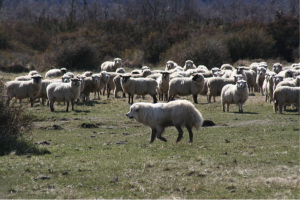
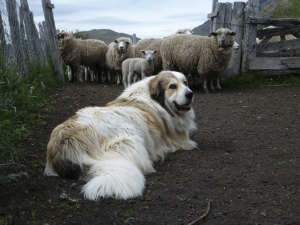
Efforts at Patagonia Park include extensive grasslands restoration, removal of over 400 miles of fencing which fragmented critical habitat by blocking wildlife corridors and entangling species like Guanacos in barbed wire leading to mortality. There is also an endangered Huemul Deer recovery program, a breeding center for Darwin’s Rheas, an Andean Condor reintroduction effort, and Puma monitoring, as well as a thriving livestock guard dog program to protect livestock from predation.
Patagonia Park is an initiative led by Conservación Patagonica since 2004, whose main goal throughout has been the formal donation of the land to the Chilean State to create Patagonia National Park, an agreement which was finalized and signed by the Chilean President President Michelle Bachelet on March 15 2017.
“The need for people and wildlife to not only coexist but to benefit each other is a challenge for protected areas and neighboring lands and communities,” said Cristián Saucedo, Conservation Director. At Conservación Patagónica, we believe this, and we invite other Chilean initiatives to be part of the Wildlife Friendly Enterprise Network, because we see this as a unique opportunity which links tourism, conservation, local communities and caring for the land as all part of our long- term vision for wild lands in Chile.”
###
About Wildlife Friendly Enterprise Network
WFEN and its certification programs represent grassroots farmers, ranchers, artisans, indigenous peoples and conservation heroes from around the world including two World Bank Development Marketplace Award winners, a U.N. Equator Prize winner, leadership in the world’s marketplace for REDD+ Carbon Offsets, a Time Hero for the Planet, and a National Geographic Big Cats Initiative grantee. Certified Wildlife Friendly® products contribute to the conservation of over twelve million hectares of diverse wetlands, forests, and grasslands; protect keystone endangered species in Asia, Africa, Europe, and Latin and North America, including the Snow Leopard, Tiger, Elephant, Cheetah, Red Panda, and Wolf; and benefit over 200,000 people through increased food security, income and employment. For more information visit: www.wildlifefriendly.org
About Patagonia Park
Conservacion Patagonica works to create national parks in Patagonia that save and restore wildlands and wildlife, inspire care for the natural world, and generate healthy economic opportunities for local communities. For more information see www.tompkinsconservation.org / www.kristinetompkins.com / www.parquepatagonia.org
Tompkins Conservation: https://www.facebook.com/tompkinsconservation/
Patagonia Park: https://www.facebook.com/parquepatagoniaoficial/
Conservacion Patagonica: https://www.facebook.com/ProtectPatagonia/
Conservacion Patagonica: https://www.instagram.com/conservacionpatagonica/
Patagonia Park: https://www.instagram.com/parquepatagonia/
Contact:
Patagonia Park
Dr. Paula Herrera, Livestock guardian dog program: pherrera@conservacionpatagonica.cl
Dr. Cristián Saucedo, Director of Wildlife Projects: csaucedo@conservacionpatagonica.cl
Alison Kelman, US Media Contact: alison.kelman@tompkinsconservation.org
Wildlife Friendly
Julie Stein: Julie@wildlifefriendly.org
Certified Wildlife Friendly™ is pleased to announce they are the newest nonprofit partner of 1% for the Planet, an alliance of over 1,380 member companies in 43 countries that give one percent of revenues to environmental causes.
Certified Wildlife Friendly™ is now eligible to receive donations from 1% member companies, placing them among a diverse, global network of environmental organizations. 1% member businesses fuel this non-profit network through their annual contributions, which totaled over $22 million in 2010. Partnership with 1% greatly expands the potential pool of funding to which Certified Wildlife Friendly™ can look to for support.
Newly approved Certified Wildlife Friendly™ contributes to a healthier planet by protecting wildlife in wild places through certifying enterprises that assure people and nature coexist and thrive.
Over 2,300 non-profits worldwide are included in the 1% network, and over $70 million has been funneled to its nonprofit partners to date. “The intent of 1% for the Planet is to help fund these diverse environmental organizations so that collectively they can be a more powerful force in solving the world’s problems,” Yvon Chouinard, founder of 1% for the Planet.


